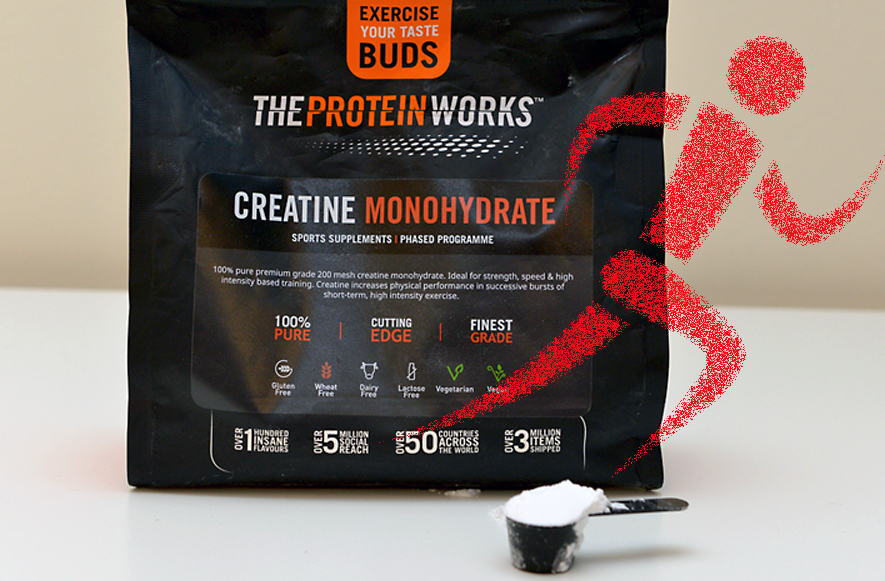Alcohol: is it ALWAYS bad for health and performance?

A new study published yesterday in the medical journal The Lancet is much in the news today, which you can read here . In this study, researchers reanalysed data from a previous study on alcohol consumption and health risks, with the catchy title 'Alcohol use and burden for 195 countries and territories, 1990–2016: a systematic analysis for the Global Burden of Disease Study 2016'. In short, this study concluded that the only safe level of alcohol consumption is zero - ie drinking any alcohol at all is a risk to health.
Risk and reward
In recent years, the official guidelines on safe drinking have been revised downwards somewhat. One thing that all health professionals are agreed on is that heavy drinking is most definitely a risk to health. The problem is that the findings of this study are not in agreement with other studies on alcohol consumption, which have suggested that low alcohol consumption is not only safe, but might also confer some health benefits compared to a completely teetotal lifestyle. Many of these studies have instead found a 'J-shaped' curve of risk with increasing alcohol consumption - ie where low alcohol consumption is somewhat protective of health compared to abstinence, but where risk increases rapidly once moderate levels of alcohol consumption are exceeded. You can see two such studies below in figures 1 and 2.Figure 1: Alcohol intake and all-cause mortality(1)

Figure 2: Alcohol intake in men following a healthy lifestyle(2)

It's not just about cardiovascular risk either. A study published in the British Medical Journal earlier this month looked at alcohol consumption and risk of dementia(3). In it, researchers tracked the health and incidence of dementia among 9087 civil servants starting in the mid 1980s and through a 23-year period thereafter. When the results were analysed, they also displayed characteristics of a J-shaped curve: the risk of dementia in the subjects was increased in people who abstained completely from alcohol in midlife or those who had habitually consumed more than 14 units per week. Those who consumed one or two drinks per day (7-14 units per week) had the lowest risk of developing dementia.
Are abstainers skewing the results?
As mentioned above, a number of previous studies have indicate a J-shaped relationship between alcohol consumption and all-cause mortality, with reduced risk for low-volume drinkers. However, some researchers have proposed that low-volume drinkers may appear healthy only because the "abstainers" with whom they are compared are biased toward ill health. An example of such abstainers would be those on long-term medication where alcohol is contraindicated, or former heavy drinkers who cease drinking entirely because of alcohol-related health problems.To investigate this further, researchers conducted a meta-study (a study pooling the data from a number of previous studies) on the relationship between alcohol consumption and all-cause mortality(4). What they discovered was that the raw data replicated the classic J-shaped curve, with low-volume drinkers (1.3-24.9 g ethanol per day) having a reduced mortality risk than abstainers. Occasional drinkers (consuming on average less than one drink per day) had similar mortality risk while former drinkers had an elevated risk.
After adjustment for abstainer biases (ie removing those who abstained because of health reasons), no significant reduction in mortality risk was observed for low-volume drinkers. But just to confuse things further however, the researchers also concluded that abstainers were no less at risk than low-moderate drinkers, and also that the risk estimates for occasional drinkers were similar to those for low- and medium-volume drinkers. In plain English, while there was no health disadvantage to being teetotal, there were no health advantages compared to occasional, low or moderate alcohol consumption - again, contradicting the Lancet study above!
The way ahead
If you're someone who enjoys a tipple, you might be forgiven for feeling thoroughly confused about the contradictory studies in the media. What we do know for sure is that heavy drinking (more than 3-4) drinks per day IS associated with poor health in the longer term. It's also going put a big dent in any training programme and athletic performance! Low-to-moderate alcohol intakes (2-3 drinks per day) are borderline in terms of health effects; men who like a drink should consider 2 drinks per day/14 units a week as the maximum desirable, while women should try and stick to the 1 drink a day/7 units a week limit (women have less muscle mass than men, which makes alcohol metabolism more difficult). Occasional drinkers have nothing to worry about as do abstainers. If you don't drink alcohol out of choice, you should NOT begin drinking alcohol on the grounds of possible health benefits!It's important as well to consider the concept of risk. In the Lancet study above, the extra risk of being a 'low' drinker compared to having a zero alcohol intake were calculated as being extremely small. To give you an idea, for every 100,000 people consuming low quantities of alcohol, the risk probability is that only 4 of these 100,000 would go onto develop health problems as a result of that continued low alcohol consumption. There are lots of things we do in life that involve some risk - driving cars, going on holiday, playing sport etc. Some we do because we need to and some because we enjoy them. If you enjoy a meal and a drink or two with friends from time to time, there's no reason to stop consuming alcohol on the basis of the latest research. Indeed, numerous other studies show that enjoying social interaction with friends is hugely positive for mental - and yes physical - health!
Advice on alcohol and sport performance
In this article, we've focused on alcohol and health. However, there are other, performance-related factors related to alcohol, with the main concern being the effect of post-exercise alcohol on the recovery process, which can be impaired even with modest amounts of alcohol. The easiest way to ensure that alcohol doesn’t interfere with your recovery is simply to avoid it during the post-exercise recovery period. But given that sport is often a social activity, and many athletes enjoy a beer or glass of wine with sporting friends after training or racing, you might be wondering how much and what type of alcohol it’s possible to drink without significantly harming your recovery. This is a topic we have explored in depth in a recent Sports Performance Bulletin article and you can find that article and all the answers here and in the links below!Andrew Hamilton, Sports Performance Bulletin editor
References
1) J Am Coll Cardiol. 2007;50(11):1009-1014. doi:10.1016/j.jacc.2007.04.0892) Arch Intern Med. 166 2006:2145-2150
3) BMJ. 2018 Aug 1;362:k2927. doi: 10.1136/bmj.k2927
4) J Stud Alcohol Drugs. 2016 Mar;77(2):185-98.
You need to be logged in to continue reading.
Please register for limited access or take a 30-day risk-free trial of Sports Performance Bulletin to experience the full benefits of a subscription. TAKE A RISK-FREE TRIAL
TAKE A RISK-FREE TRIAL
Newsletter Sign Up
Testimonials
Dr. Alexandra Fandetti-Robin, Back & Body Chiropractic
Elspeth Cowell MSCh DpodM SRCh HCPC reg
William Hunter, Nuffield Health
Newsletter Sign Up
Coaches Testimonials
Dr. Alexandra Fandetti-Robin, Back & Body Chiropractic
Elspeth Cowell MSCh DpodM SRCh HCPC reg
William Hunter, Nuffield Health
Keep up with latest sports science research and apply it to maximize performance
Today you have the chance to join a group of athletes, and sports coaches/trainers who all have something special in common...
They use the latest research to improve performance for themselves and their clients - both athletes and sports teams - with help from global specialists in the fields of sports science, sports medicine and sports psychology.
They do this by reading Sports Performance Bulletin, an easy-to-digest but serious-minded journal dedicated to high performance sports. SPB offers a wealth of information and insight into the latest research, in an easily-accessible and understood format, along with a wealth of practical recommendations.
*includes 3 coaching manuals
Get Inspired
All the latest techniques and approaches
Sports Performance Bulletin helps dedicated endurance athletes improve their performance. Sense-checking the latest sports science research, and sourcing evidence and case studies to support findings, Sports Performance Bulletin turns proven insights into easily digestible practical advice. Supporting athletes, coaches and professionals who wish to ensure their guidance and programmes are kept right up to date and based on credible science.









